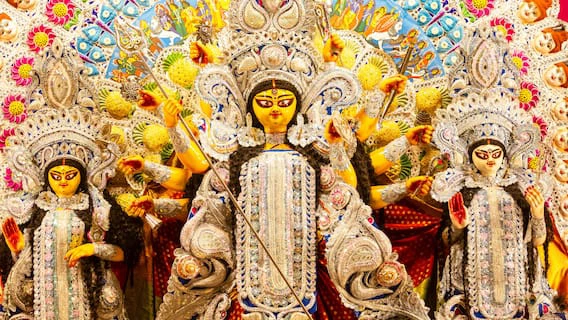Charity holds importance not only on religious festivals dedicated to deities but also on any auspicious occasion. According to scriptures and Puranas, donating during Navratri is considered especially fruitful.
This sacred period is believed to be a time when even the smallest good deeds can transform one’s life. Ancient texts describe this phase of the stars as ‘the peak of divine energy.’
The Skana Puran mentions that during Navratri, Goddess Shakti remains particularly active and compassionate toward devotees. Similarly, the Markandeya Puran highlights through Durga Saptashati that sincere worship of the Goddess removes adversities from life.
Mythological References
King Sutikshna’s Story (Ramayana)
It is said that King Sutikshna observed the Navratri fast and donated to the needy. As a result, his kingdom flourished with prosperity and happiness.
Satyavan-Savitri (Mahabharata)
According to the epic, Savitri’s devotion, fasting, and prayers to the Goddess restored the life of her husband Satyavan, showing how faith and penance can even alter destiny and conquer death.
The Tradition Of Kanya Pujan
Folklore recounts that a sage offered food and gifts to young girls on the final day of Navratri. This act of reverence ended his hardships and brought lasting peace and stability to his life.
Day-Wise Charity During Navratri
The scriptures describe the importance of different forms of charity for each day of Navratri:
- Day 1: Food donation (Anna Daan)
- Day 2: Clothing donation
- Day 3: Offering lamps (Deepdaan)
- Day 4: Cow donation or offering Tulsi
- Day 5: Water donation
- Day 6: Knowledge donation
- Day 7: Kanya Pujan (worship of young girls)
- Day 8: Annakoot Bhog (feast offering)
- Day 9: Final oblation and charity (Purnahuti)
